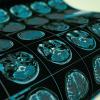News
Microsatellite instability cancer tests
New US research compares the data of newly diagnosed cancer patients who received two different types of tests to determine their course of treatment.
Vaccine for highly fatal tropical disease
In a mouse study, UCLA researchers tested a vaccine against the bacterium that causes melioidosis and found it was highly protective against the disease.











